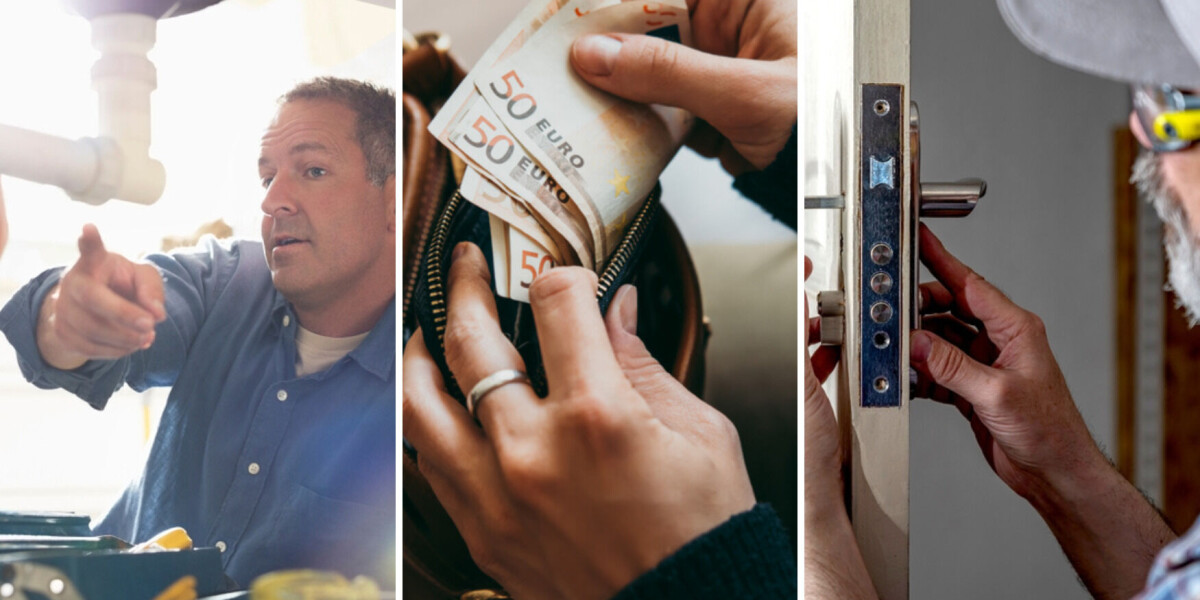
- Select a language for the TTS:
- UK English Female
- UK English Male
- US English Female
- US English Male
- Australian Female
- Australian Male
- Language selected: (auto detect) - EN
Play all audios:
An emergency visit from an electrician, locksmith or plumber could expose you to scams and substandard work, says the French anti-fraud watchdog.
However, emergency home repairs or dépannage à domicile, is a highly regulated sector where the client is always on an equal footing with the emergency worker, who can face fines and even
prison for abusing their client’s trust.
Disreputable electricians, locksmiths and plumbers know that when people feel panicked and under pressure, they make bad decisions, including:
The French anti-fraud watchdog DGCCRF found that 64% of emergency home repair companies “show irregularities,” which rises to 70% in Paris.
Follow our A,B,C guide before you sign anything to avoid the worst home repair scams.
Your first reflex when looking for a repair person should not be a Google search, or to rifle through business cards.
It is very easy for small companies to curate a good reputation online or to deliver business cards door to door. Neither of these things mean a company is trustworthy.
Instead, you should have a list of trustworthy professionals that you have either employed before, or have good references.
Ask your friends and neighbours and use their experiences to write a list before you need one.
By taking control of emergencies, you are less likely to fall into the lap of scammers, who transform people’s panic into an urgent need to pay.
Read more:Is it legal to pay a tradesperson in cash in France?
If you have a leaking pipe or a blown fuse, remember, that is the problem that needs fixing. If the repair person identifies anything else, it can wait…or at least wait for a second-opinion.
Do not let your gratitude or sense of relief lead you to accept an invoice on more than the bare minimum repair necessary.
Emergency repair workers are also required to show this same level of precision. They must all offer detailed written estimates for anything above €1, according to the DGCCRF.
All tradespeople are obliged to provide detailed and precise information about:
If they do not offer you this level of precision, then find someone else. They will accept your decision - tradespeople are well aware of the severe sanctions in place for incorrect bills of
sale.
A company or tradesperson cannot oblige you to pay in cash. If they do not accept cheques, then a bank transfer should be possible. If you do pay in cash, this must be specifically mentioned
on the bill of sale.
Read more: How do I make insurance claim after weather damage to French home?
When a tradesperson has provided you with an estimate, compare the prices with those you can find online. Do not feel rushed into a sale.
You should be able to find any parts listed on the estimate at online bricolage shops.
You should also check the tradesperson’s credentials. The invoice will include their tax number, which you can look up online, and see where they are registered and how long they have been
in operation.
People who have made a long career working in an area are less likely to be dishonest with you and more likely to be aware of their own obligations.
Finally, check that the work really is urgent. Remember, the longer work can wait, the more choice of tradesperson you will have, which has an impact on prices.






